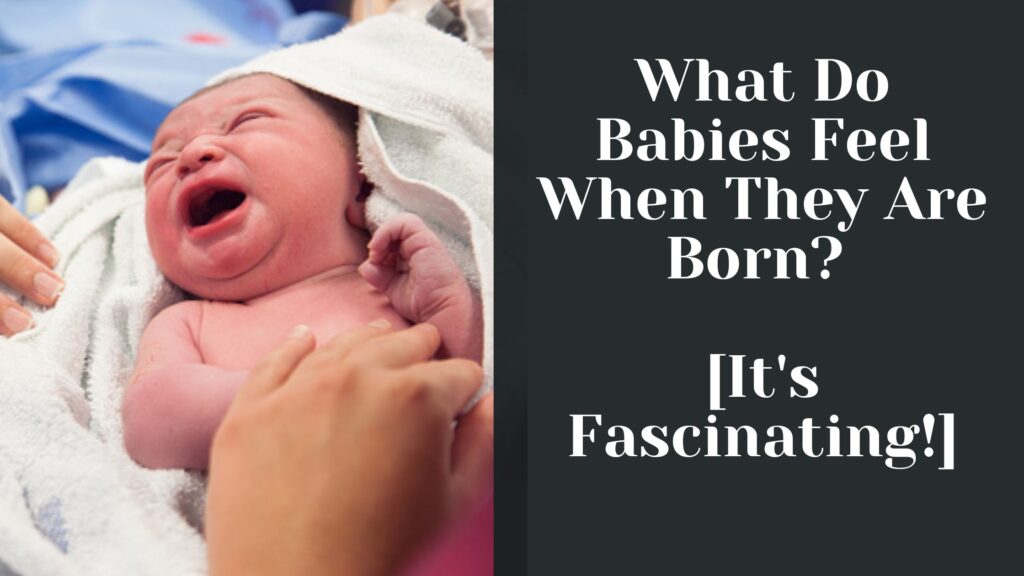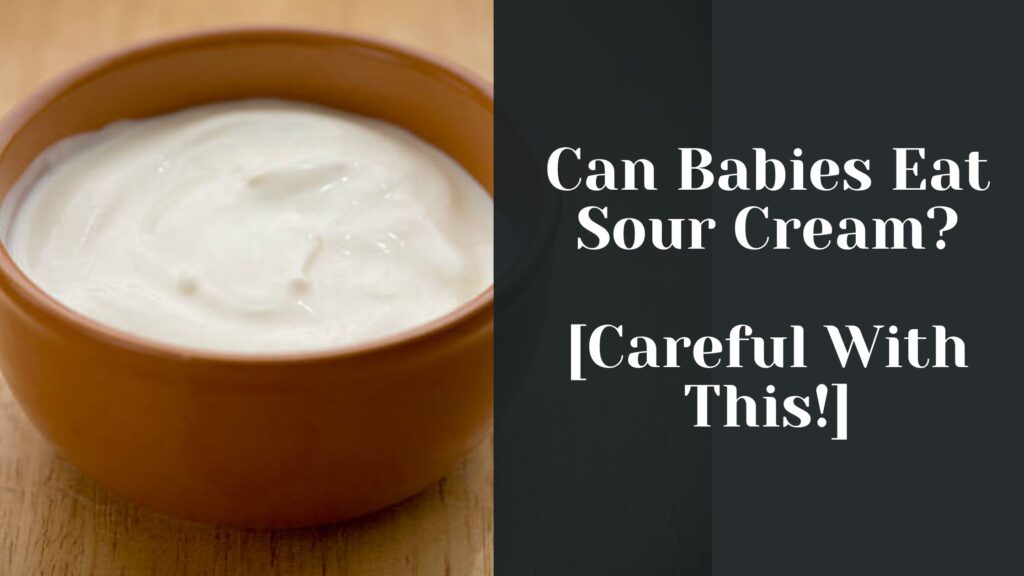We all enjoy sweet foods and drinks!
In fact, maple syrup is a popular sweetener that many people enjoy in their coffee or tea.
It’s made from the sap of the maple tree, and it contains lots of minerals and vitamins.
But can babies have maple syrup?
Here is everything you need to know about potential allergic reactions, infant botulism, and more.
You will find the straight answer below, but keep on reading if you are interested in the details and in the alternatives to feed 🙂
Can Babies Have Maple Syrup?
Maple syrup is harmless in modest amounts. However, letting your baby eat maple syrup may lead them to reject non-sweet foods, have an allergic reaction or even get infant botulism. The risk of infant botulism disappears after 12 months. As a result, it is best to wait until your child turns one before feeding them maple syrup.
Can a Baby Eat Maple Syrup at 6 Month Old?
Occasional, small quantities of maple syrup are harmless to babies who are 6 months old. However, 6 months old babies can still be at risk of infant botulism.
Consult your doctor to see if your baby is ready to eat maple syrup or if you should consider a safer alternative until they turn at least 1 year old.
When Can Babies Have Maple Syrup?
Babies can eat tiny amounts of maple syrup at any age, but it is best to wait until they are 12 months old.
That is mainly because the risks of infant botulism lowers when the baby turns 6 months old, and it disappears after 12 months.
However, always consult a doctor if you have any concerns about your baby’s health.
Explained: Why It Is Best For Babies Not To Have Maple Syrup
There are several reasons why you should avoid feeding your baby maple syrup.
Infant botulism and allergic reactions are at the top of the list:
1. Maple Syrup Can Cause Infant Botulism
Infant botulism is a rare but serious condition that can affect infants younger than one year of age.
It is caused by the bacteria Clostridium botulinum, which can be found in soil and water, and it’s often spread through contact with contaminated surfaces or food.
The bacterium grows and thrives in the moist environment of the baby’s mouth and can cause paralysis if left untreated.
Babies are especially vulnerable to infant botulism because their immune systems are not yet strong enough to fight off the bacteria.
In fact, even adults can get botulism if they eat food that has been contaminated with the bacterium!
Symptoms of infant botulism include:
- Poor feeding
- Constipation
- Sluggish pupils
- Ptosis
- Bad gag reflexes
- Flattened facial expression
- Change in their cry
- Difficulty breathing
- Respiratory arrest
If you’re concerned that your child may have infant botulism, contact your doctor immediately.
2. Maple Syrup Can Cause Allergic Reactions
If you decide to let your baby try a small amount of maple syrup, watch out for allergy symptoms, including:
- hives
- swelling
- rash
- wheezing
- tingling in the baby’s throat or mouth
- digestive issues
- dizziness
- trouble breathing
It’s important to remember that no one knows for sure how Maple Syrup will affect a child until they’ve had the opportunity to try it and see what happens.
Until then, proceed with caution and consult with a healthcare professional if you have any doubts about its safety for your infant.
3. It Can Rot Your Baby’s Teeth
While maple syrup can be a delicious addition to your breakfast, dinner, or snack time, it’s not for babies to have regularly.
In fact, because of the sugar content in maple syrup, it can rot teeth and cause cavities.
Most babies start teething when they are 6 months old.
Maple syrup contains high levels of sugar which can damage both the enamel and the dentin over time.
This is why it’s not recommended for infants to drink or eat maple syrup, unless it is on rare occasions.
4. Sugar Is Addictive
Babies and children love sweet foods!
And, no matter the type of sugar you use, whether natural sweeteners such as maple syrup or alternative sugars such as coconut sugar, they can all be addictive.
Natural sugars are safe for babies who have yet to turn 12 months old (Except for honey).
Although natural sugars are less refined and retain more vitamins, minerals and antioxidants, I wouldn’t recommend feeding these to babies, since you will encourage them to prefer sweet foods.
Can Babies Have Maple Syrup in Baked Goods?
This really depends on the recipe.
Some recipes call for just a tiny amount of maple syrup, while others require more, leading to potential allergies.
Your baby may be able to tolerate small amounts of maple syrup in certain recipes without any adverse effects, but it’s best not to take risks if you don’t know for sure.
If you do include maple syrup in your baby’s diet, make sure they’re getting enough other nutrients too – like protein – since sugary foods can affect growth and development.
If you’re unsure whether or not your baby can eat maple syrup, err on the side of caution and omit it from your recipe.
Maple Syrup Substitutes For Babies
There are many things you can do to make your baby’s food taste more interesting.
For example, if your baby is 6 months or older you could add a bit of sour cream to their food.
However, if you wish to make their food sweeter, here are many great alternatives to maple syrup for your baby:
1. Sweeter Fruit and Vegetables
Not only are fruits like bananas and apricots yummy and sweet, but they are an excellent source of vitamins and minerals, which are essential for a baby’s development.
Vegetables also provide important nutrients such as potassium and vitamin C.
Examples of sweet vegetables include pumpkin, carrots, and sweet potatoes.
Make sure you remove the skin of fruit and vegetables, as well as mashing them, before serving them to your baby.
2. Dates Puree
Dates are an excellent source of minerals and vitamins.
Minerals include:
- Calcium
- Iron
- Magnesium
- Zinc
- Potassium
Vitamins include:
- Riboflavin
- Thiamin
- Folate
- Vitamin A
- Vitamin B6
- Vitamin K
Simply let fresh dates soak for 4 hours and blend them to make a puree.
3. Agave Nectar
Agave nectar is a type of sugar that has been grown without the use of pesticides or fertilizers.
This means that the sugar is free from chemicals that can be harmful to humans and the environment.
Agave nectar is often used to treat babies’ coughs, so it is perfectly safe to use as a sweetener in small quantities.
Although agave nectar has properties similar to honey, it has not been associated with botulism.
4. Apple Puree
Apples contain plenty of nutrients and dietary fibre.
And, although you cannot feed your baby solid apples, you can easily make a puree for your little one to enjoy.
Peel and cut the apples first, steam them and then blend them to make a puree.
Can You Use Maple Syrup For Baby Constipation?
If your infant is generally healthy but occasionally suffers from constipation, use a small amount of maple syrup with water to ease constipation.
However, if your baby’s constipation persists or is accompanied by other symptoms, contact your doctor right away.
Can You Put Maple Syrup In Baby Formula?
I do not advise adding maple syrup into baby formula. Feeding maple syrup to your child on a regular basis can result in dental decay, sugar addiction, weight gain, and even botulism.
If your baby is four months or younger, you should try to give them just breast milk or baby formula.
Conclusion
Babies can have maple syrup in small quantities, but given the risks associated with it, I recommend you steer clear until your little one turns 1 year old.
To recap, giving babies maple syrup can cause:
- Infant botulism
- Allergic reactions
- Tooth decay
- Sugar addiction
Speak to your doctor for further advice.


